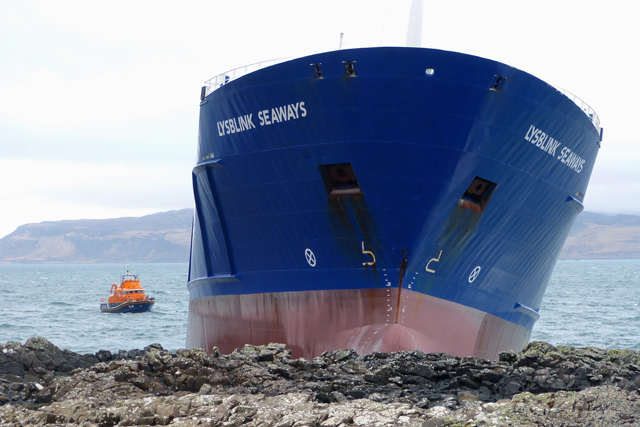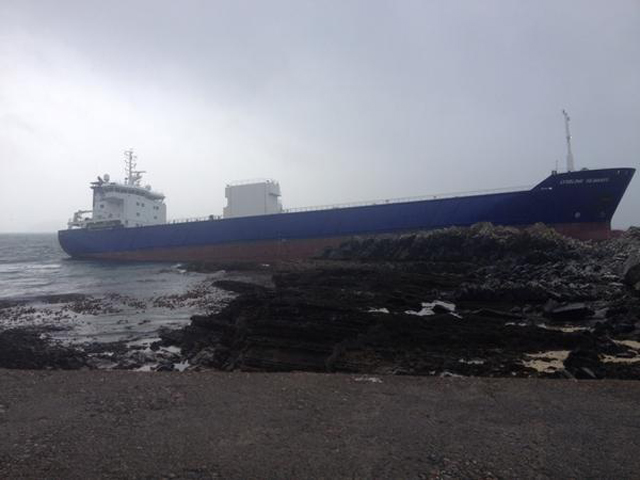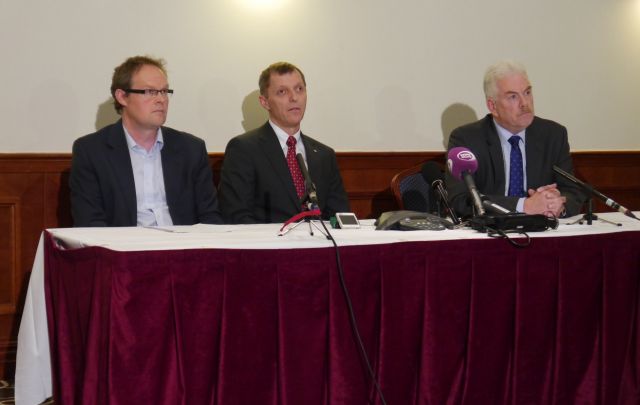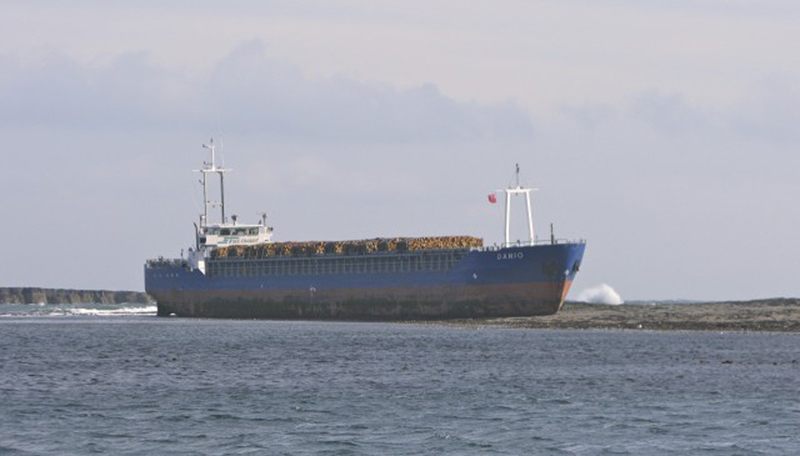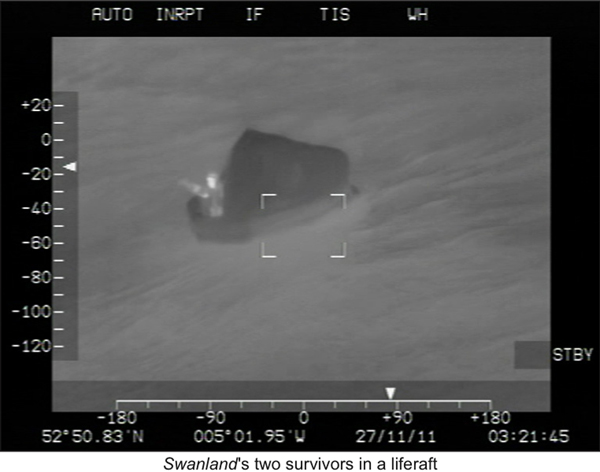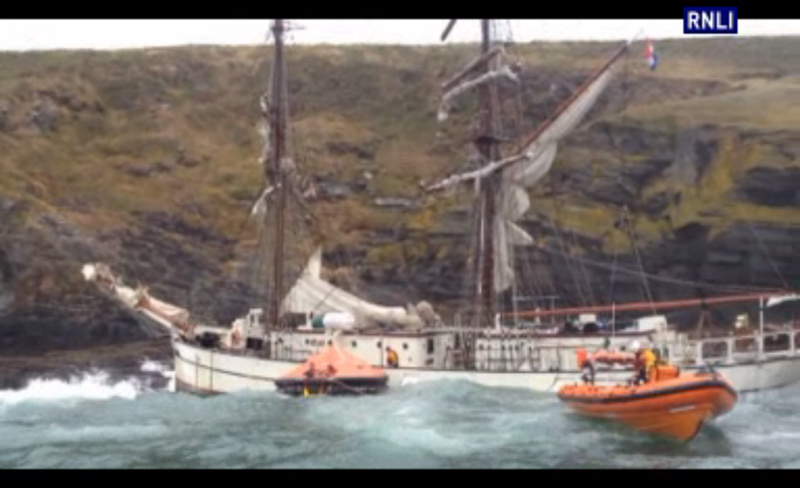An official report has found that the grounding of cargo vessel Lysblink Seaways off the west coast of Scotland, was caused by an inebriated watchkeeper.
On 18 February 2015, while on passage from Belfast to Skogn, Norway the general cargo vessel Lysblink Seaways ran aground at full speed, near Kilchoan, Ardnamurchan peninsula, West Scotland.
The vessel remained on the rocky foreshore for almost two days during adverse weather. This resulted in material damage to its hull and the double bottom was breached, including some fuel tanks, resulting in 25 tonnes of marine gas oil entering the water.
After the salvage the vessel was declared a constructive total loss and scrapped
The Marine Accident Investigation Branch (MAIB) investigation found that the officer of the watch – who was the sole watchkeeper – had become ‘inattentive due to the effects of alcohol consumption’.
The bridge navigational watch alarm system had not been switched on and an off-track alarm on the Electronic Chart System had been silenced.
Although a radar watch alarm had sounded every six minutes, the officer on watch was able to reset the alarm without leaving his chair.
The report states: ‘The chief officer had consumed a very large amount of alcohol before going on watch. However, the investigation found that the owner’s zero alcohol policy on board was often flouted by crew members.
The inventory of the vessel’s bonded store records that it was regularly replenished with spirits, wine and beer, and evidence of significant alcohol consumption by the crew should have alerted the owner to the likelihood that its alcohol policy was not being observed.’
The investigation revealed that it was normal practice on board Lysblink Seaways for the radar watch alarm to be used instead of the BNWAS, as the reset button for this alarm could be reached from the wheelhouse chair.
However, the radar watch alarm had no staged, remote alarm function and was unsuitable for use as a replacement for the BNWAS. Its effect was similar to that of a ‘snooze’ button on a bedside alarm clock.
Had the BNWAS been switched on, it is probable that by having to leave his chair to reset the alarm the officer on watch would have realised that a navigation waypoint had been missed at an earlier stage.
Read the report in full at www.maib.gov.uk
Grounded cargo ship drags anchor in high winds
The grounded cargo ship Lysblink Seaways has been towed back out to sea after dragging her anchor in high winds.
Cargo ship aground at Kilchoan
The general cargo vessel Lysblink Seaways has run aground north of the Isle of Mull, near Kilchoan.
‘No quick fix’ for operation to refloat Höegh Osaka cargo ship
The stricken Höegh Osaka was 'deliberately grounded' in the Solent, a press conference was told.
Crew rescued from sticken cargo ship
The car carrier remains grounded on the Bramble Bank, listing at 45 degrees, but out of the shipping channel
Operator fined after cargo ship crashes into Farne Islands
£73,000 in fines and costs for operator of coaster ship after crew failed to keep a proper lookout
Crew rescued from sinking cargo ship
All six crew members aboard the sinking Sea Breeze were rescued
Damning report into ‘avoidable’ cargo ship tragedy
Six lives were lost when the Swanland cargo ship foundered
Ketch out to inspire wind-powered cargo ships
Vintage trader taking olive oil to Brazil
Ship splits in two in rough weather off French coast
The Luno Spanish-flagged cargo ship has sunk close to a beach after striking a sea wall
Tall Ship Astrid sinks off the Cork coast
'We've lost a bit of history'





